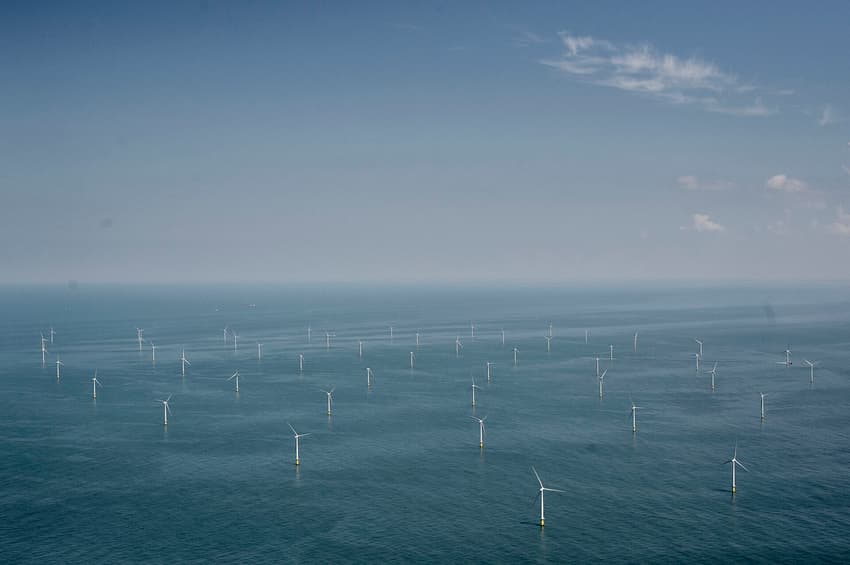Danish energy island put on hold over financial concerns

The Danish government has announced it is putting plans for an artificial energy island in the North Sea on hold while it re-evaluates the model for its construction.
Material for tender of the project was due to be published by the end of this month, but this has now been put back, the Ministry of Climate, Energy and Utilities said on Wednesday.
“The Danish Energy Agency (Energistyrelsen) estimates that state costs for the current project are over 50 billion kroner in total,” the ministry wrote in a statement.
“As such, the project is far from being financially viable, which was a clear condition for the project in the political agreements,” it said.
The idea to build an artificial island capable of producing energy comes from a political agreement announced in 2021. The artificial island would have the objective of collecting and distributing energy delivered from North Sea wind turbines.
READ ALSO: Denmark approves plans to build North Sea 'energy island'
In Wednesday’s statement, the energy ministry says it still has the “ambition” to create a North Sea energy island.
“But in light of challenges with the economy, alternatives that make the project more financially viable must be investigated. In its current form, the costs to the state are too big and the risks too many,” the ministry said.
Green Power Denmark, an interest organisation for companies in the energy sector, said it was understandable and sensible not to rush the project but that there is also not an unlimited supply of time.
“The energy island in the North Sea is a very big investment and must be invented from scratch. No one has ever tried to build anything like it,” said Thomas Aarestrup Jepsen, the organisation’s director for sustainable energy production.
“That’s why it’s understandable that the government need to reconsider and involve parliament in the decisions. We expect the government to quickly initiate a dialogue with businesses and investors to find a solution,” he said.
“The energy island should preferably be ready to receive energy shortly after 2030 so the government and parliament seem to be under some time constraints,” he said.
Comments
See Also
Material for tender of the project was due to be published by the end of this month, but this has now been put back, the Ministry of Climate, Energy and Utilities said on Wednesday.
“The Danish Energy Agency (Energistyrelsen) estimates that state costs for the current project are over 50 billion kroner in total,” the ministry wrote in a statement.
“As such, the project is far from being financially viable, which was a clear condition for the project in the political agreements,” it said.
The idea to build an artificial island capable of producing energy comes from a political agreement announced in 2021. The artificial island would have the objective of collecting and distributing energy delivered from North Sea wind turbines.
READ ALSO: Denmark approves plans to build North Sea 'energy island'
In Wednesday’s statement, the energy ministry says it still has the “ambition” to create a North Sea energy island.
“But in light of challenges with the economy, alternatives that make the project more financially viable must be investigated. In its current form, the costs to the state are too big and the risks too many,” the ministry said.
Green Power Denmark, an interest organisation for companies in the energy sector, said it was understandable and sensible not to rush the project but that there is also not an unlimited supply of time.
“The energy island in the North Sea is a very big investment and must be invented from scratch. No one has ever tried to build anything like it,” said Thomas Aarestrup Jepsen, the organisation’s director for sustainable energy production.
“That’s why it’s understandable that the government need to reconsider and involve parliament in the decisions. We expect the government to quickly initiate a dialogue with businesses and investors to find a solution,” he said.
“The energy island should preferably be ready to receive energy shortly after 2030 so the government and parliament seem to be under some time constraints,” he said.
Join the conversation in our comments section below. Share your own views and experience and if you have a question or suggestion for our journalists then email us at [email protected].
Please keep comments civil, constructive and on topic – and make sure to read our terms of use before getting involved.
Please log in here to leave a comment.